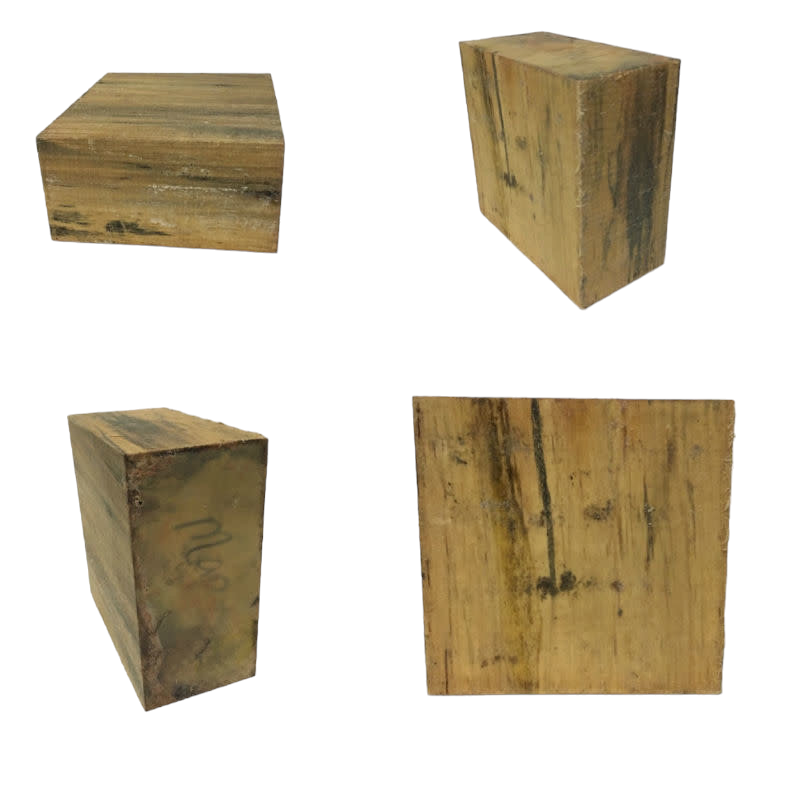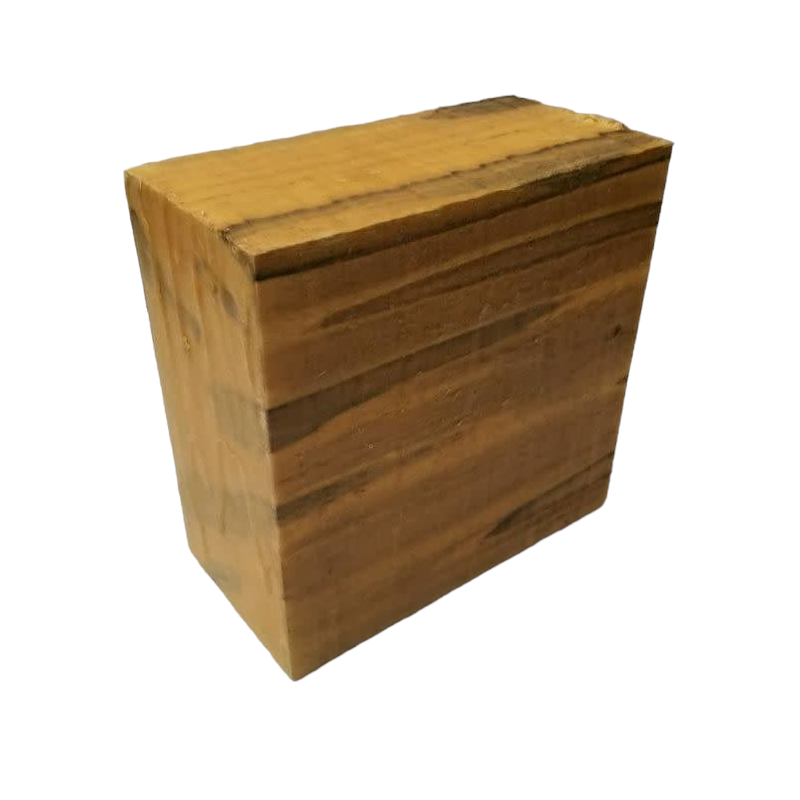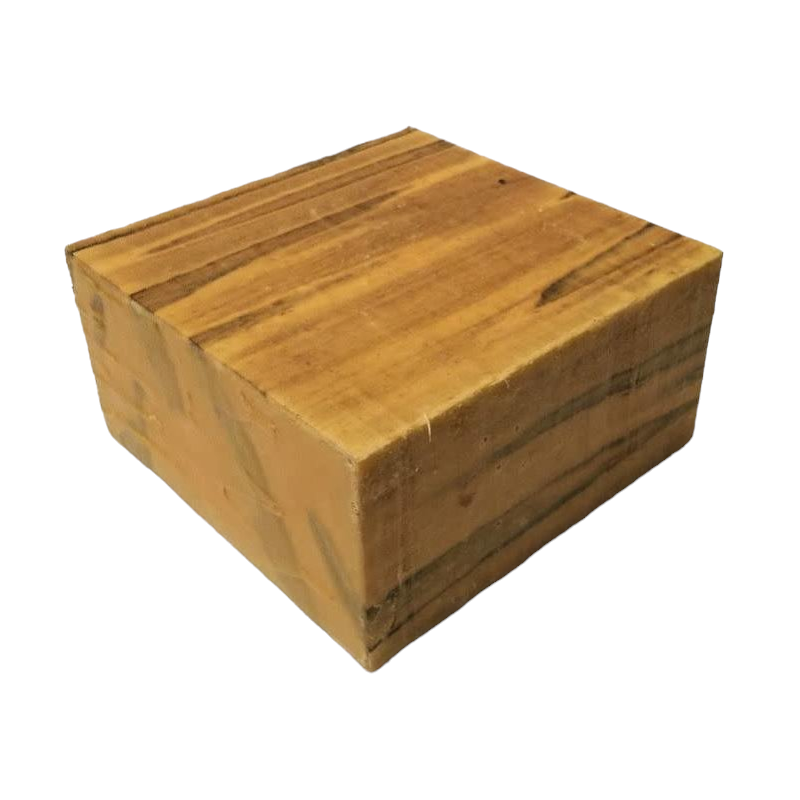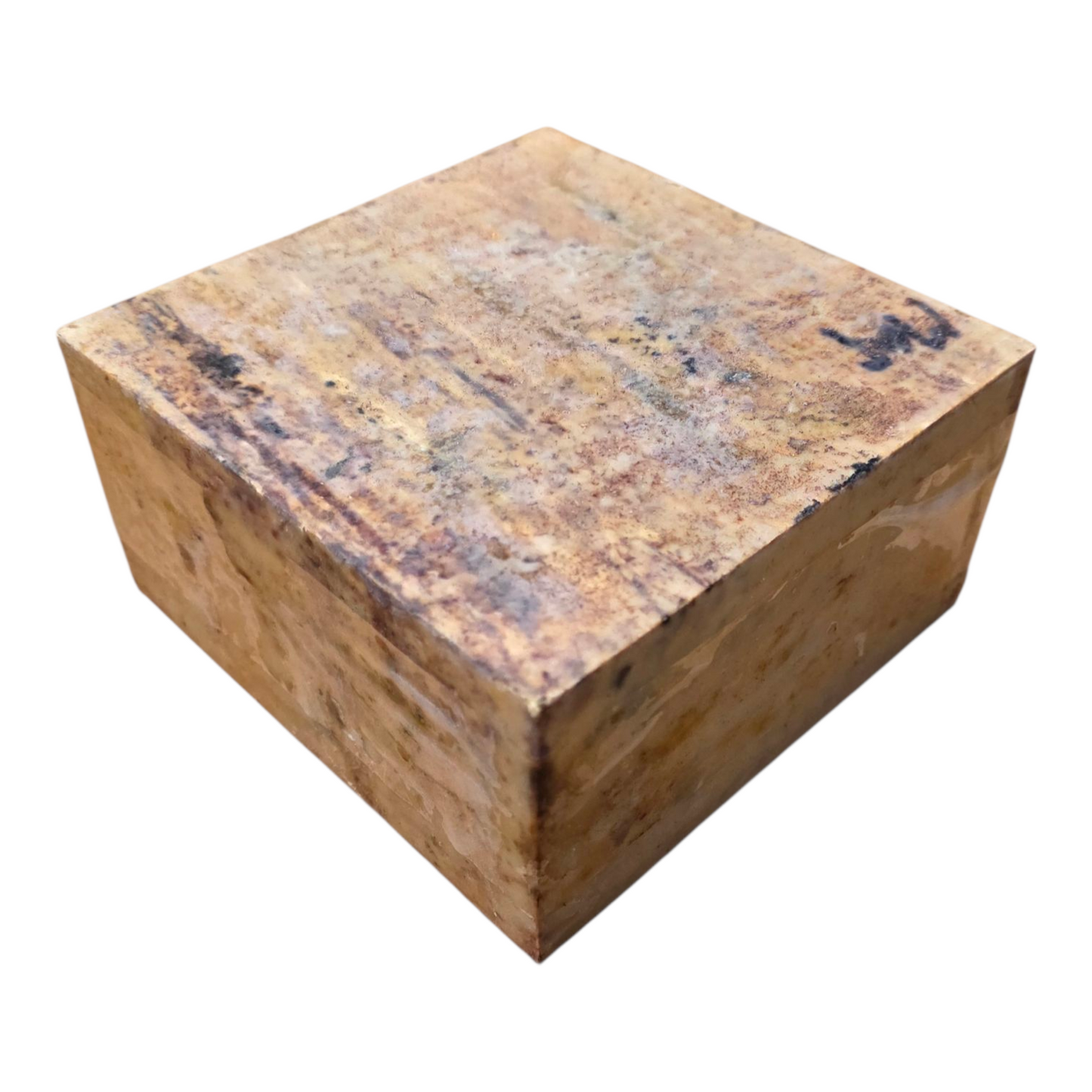Wood
Ambrosia Maple Blocks
Ambrosia Maple Blocks
Low stock: 1 left
Couldn't load pickup availability
What makes mahogany so great
“Rosewood.” “Teak.” “Satinwood.” Each well-known wood has along with it a set of expectations. Mahogany is no different. From the top-notch mahogany of yesterday, one would expect to encounter the following characteristics of the wood:
- Excellent workability. Mahogany is known for its cooperative nature and easy sanding and machining, with a Goldilocks-esque balance of density thats just hard enough but not too hard. When the grain is straight and consistent, there’s not much that can go wrong.
- Excellent stability. As much as it’s known for its workability, mahogany is equally known for its superb dimensional stability. Flat pieces will remain flat. Joints and glue-ups will remain intact. In the midst of seasonal changes in humidity, mahogany exhibits minimal shrinkage and swelling.
- Decent rot resistance. Perhaps not to the same level as Teak or other exotic tropical timbers, but certainly respectable. Though younger plantation-grown trees aren’t quite as durable as the older wild-grown trees of centuries past.
- Beautiful grain. Mahogany can sometimes be rather plain and almost utilitarian, but on other pieces, it ascends to the heights of sophistication. What antique bombe chest would be complete without exquisite crotch mahogany veneer drawer fronts?
- Large, clear lumber. Mahogany trees get huge. They’re both tall and stout, yielding long, wide, knot and defect-free boards.
African Mahogany
Color/Appearance: Heartwood ranges from pale pink to a deeper reddish brown, sometimes with streaks of medium to dark reddish brown. Colors darken with age. Quartersawn surfaces exhibit a ribbon-stripe appearance.
Grain/Texture: Grain is straight to interlocked, with a medium to coarse texture. Good natural luster and a high degree of chatoyancy.
Rot Resistance: Rated as moderately durable; moderate to poor insect/borer resistance.
Workability: Generally easy to work, though tearout can be a problem if the grain is interlocked. May stain and react with iron-based fasteners in damp conditions. Glues, turns, and finishes well.
Sapele
Color/Appearance: Heartwood is a golden to dark reddish brown. Color tends to darken with age. Besides the common ribbon pattern seen on quartersawn boards, sapele is also known for a wide variety of other figured grain patterns, such as: pommele, quilted, mottled, wavy, beeswing, and fiddleback.
Grain/Texture: Grain is interlocked, and sometimes wavy. Fine uniform texture and good natural luster.
Rot Resistance: Heartwood ranges from moderately durable to very durable in regard to decay resistance. Moderate insect/borer resistance.
Workability: Sapele can be troublesome to work in some machining operations, (i.e., planing, routing, etc.), resulting in tearout due to its interlocked grain. It will also react when put into direct contact with iron, becoming discolored and stained. Sapele has a slight blunting effect on cutters, but it turns, glues, and finishes well.
Honduran Mahogany
Color/Appearance: Heartwood color can vary a fair amount, from a pale pinkish brown to a darker reddish brown. Color tends to darken with age. Mahogany also exhibits an optical phenomenon known as chatoyancy.
Grain/Texture: Grain can be straight, interlocked, irregular or wavy. Texture is medium and uniform, with moderate natural luster.
Rot Resistance: Varies from moderately durable to very durable depending on density and growing conditions of the tree. (Older, wild-grown trees tend to produce darker, heavier, and more durable lumber, while plantation-grown stock can be lighter in weight, paler in color, and slightly less rot resistant.) Heartwood is generally resistant to termites, but vulnerable to other insects.
Workability: Typically very easy to work with both hand and machine tools. (With exception to sections with figured or irregular grain, which can tearout or chip during machining.) Slight dulling of cutters can occur. Sands very easily. Turns, glues, stains, and finishes well.
Share






- Choosing a selection results in a full page refresh.
- Opens in a new window.




